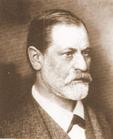
著作 1950 《兒童和社會》
1958 《少年路德:精神分析和歷史的研究》
1964 《領悟與責任》
1968 《同一性(青少年與危機)》
1969 《甘地的真理:論好戰的非暴力根源》
1973 《共同點的研究》
1974 《新的同一性維度》
1975《生命歷史與歷史時刻》
1977 《玩具和理由:經驗儀式化的階段》
1979 《同一性與生命周期:一種新觀點》
1982 《生命周期的完成》
1986 《老年人的重大事件》著名的人格發展八階段論
第一階段 獲得基本信任感克服基本不信任感
從出生到十八個月左右是嬰兒期。這是獲得基本信任感而克服基本不信任感階段。所謂基本信任,就是嬰兒的需要與外界對他需要的滿足保持一致。這階段嬰兒對母親或其他代理人表示信任,嬰兒感到所處的環境是個安全的地方,周圍人們是可以信任的,由此就會擴展為對一般人的信任。
第二階段 獲得自主感而避免懷疑感與羞恥感
從十八個月到三、四歲是童年期。這是獲得自主感而避免懷疑感與羞恥感階段。個體在第—,階段處於依賴性較強的狀態下,什麼都由成人照顧。到了第二階段,兒童開始有了獨立自主的要求,如想要自己穿衣、吃飯、走路、拿玩具等,他們開始去探索周圍的世界。這時候,如果父母及其他照顧他們的成人,允許他們獨立地去乾一些力所能及的事情,並且表揚他們完成的工作,就能培養他們的意志力,使他們獲得了一種自主感,能夠自己控制自己。
相反,如果成人過分愛護他們,處處包辦代替,什麼也不需要他們動手;或過分嚴厲,這也不準那也不許,稍有差錯就粗暴地斥責,甚至採用體罰。例如,孩子由於不小心打碎了杯子,尿濕了褲子,成人就對其打罵,使孩子一直遭到許多失敗的體驗,就會產生自我懷疑與羞恥之感。
第三階段 獲得主動感而克服內疚感
四到五歲是學前期。這是獲得主動感而克服內疚感階段。個體在這階段的肌肉運動與言語能力發展很快,能參加跑、跳、騎小車等運動,能說一些連貫的話,還能把自己的活動擴展到超出家庭的範圍。除了模仿行為外,個體對周圍的環境(也包括他自己的機體)充滿了好奇心,知道自己的性別,也知道動物是公是母,常常問問這,動動那。這時候,如果成人對於孩子的好奇心以及探索行為不橫加阻撓,讓他們有更多機會去自由參加各種活動,耐心地解答他們提出的各種問題,而不是嘲笑;禁止,更不是指責,那么,孩子的主動性就會得到進一步發展;表現出很大的積極性與進取心。
第四階段 獲得勤奮感而避免自卑感
從六歲到十一、二歲是學齡初期。這是獲得勤奮感避免自卑感階段。學齡初期兒童的智力不斷地得到發展,特別是邏輯思維能力發展迅速,他們提出的問題很廣泛,而且有一定的深度。他們的能力也日益發展,參加的活動已經擴展到學校以外的社會。這時候,對他們影響最大的已經不是父母,而是同伴或鄰居,尤其是學校中的教師。他們很關心物品的構造、用途與性質,對於工具技術也很感興趣。這些方面如果能得到成人的支持、幫助與讚揚,則能進一步加強他們的勤奮感,使之進一步對這些方面發生興趣。 埃里克森勸告做父母的人,不要把孩子的勤奮行為看作為搗亂,否則孩子會形成自卑感,認為自己不如別人,應該鼓勵孩子努力獲得成功,努力完成任務,激發他們的勤奮感與競爭心,有信心獲得好成績;還要鼓勵他們儘自己最大努力與周圍人們發生聯繫,進行社會交往,使他們相信自己是有能力的、聰明的,任何事情都能做得很好,即使是參加賽跑,也會認為自己是跑得很快的。總之,使他們懷有一種成就感。
第五階段 獲得同一感而克服同一性混亂
從十一、二歲到十七、八歲是青春期。這一階段的核心問題是自我意識的確定和自我角色的形成。
“同一性”這一概念是埃里克森自我發展理論中的一個重要組成部分,它具有非常廣泛的含義。它可以理解為社會與個人的統一,個體的主我與客我的統一,個體的歷史性任務的認識與其主觀.願望的統一;也可理解為對自己的過去、現在和將來,即在任何情況下都能夠全面認識到意識與行動的主體是自己,或者說能抓住自己,亦即是“真正的自我”,也可稱為“核心的自我”。
青少年對周圍世界有了新的觀察與新的思考方法,他們經常考慮自己到底是怎樣一個人,他們從別人對他的態度中,從自己扮演的各種社會角色中,逐漸認清了自己。此時,他們逐漸疏遠了自己的父母,從對父母的依賴關係中解脫出來,而與同伴們建立了親密的友誼,從而進一步認識自己,對自己的過去、現在、將來產生 ——種內在的連續之感,也認識自己與他人在外表上與性格上的相同與差別。認識自己的現在與未來在社會生活中的關係,這就是同一性,即心理社會同一感。
埃里克森認為,這種同一感可以幫助青少年了解自己以及了解自己與各種人、事、物的關係,以便能順利地進入成年期。否則就會產生同一性的混亂。如:懷疑自我認識與他人對自己認識之間的一致性;做事情馬虎,看不到努力工作與獲得成就之間的關係。同一性混亂,還表現在對領導與被領導之間的共同點與差異看不清,要么持對立情緒,要么盲目順從等。在兩性問題上也會發生同一性的混亂,認識不到兩性之間的同一與差異等。
第六階段 獲得親密感而避免孤獨感
從十七、八歲至三十歲是成年早期。這是建立家庭生活的階段,這是獲得親密感,避免孤獨感階段。親密感,是人與人之間的親密關係,包括友誼與愛情。親密的社會意義,是個人能與他人同甘共苦、相互關懷。親密感在危急情況下往往會發展為一種互相承擔義務的感情,它是在共同完成任務的過程中建立起來的。
如果一個人不能與他人分享快樂與痛苦,不能與他人進行思想情感的交流;不相互關心與幫助,就會陷入孤獨寂寞的苦惱情境之中。
第七階段 獲得創造力感,避免“自我專注”
這是中年期與壯年期,是成家立業的階段。這是獲得創造力感,避免“自我專注”階段
這一階段有兩種發展的可能性,一種可能是向積極方面發展,個人除關懷家庭成員外,還會擴展到關心社會上其他人,關心下一代以至子孫後代的幸福。他們在工作上勇於創造,追求事業的成功,而不僅是滿足個人需要;另一種可能性是向消極方面發展,即所謂“自我專注”,就是只顧自己以及自己家庭的幸福,而不顧他人的困難和痛苦,即使有創造,其目的也完全是為了自己的利益。
第八階段 獲得完美感而避免失望感
這是老年期,亦即成熟期。這是獲得完美感,避免失望感階段。如果前面七個階段積極的成分多於消極的成分,就會在老年期匯集成完美感,回顧—生覺得這一輩子過得很有價值,生活得很有意義。相反,如果消極成分多於積極成分,就會產生失望感,感到自己的一生失去了許多機會,走錯了方向,想要重新開始又感到為時已晚,痛不勝痛,於是產生了—.種絕望的感覺,精神萎靡不振,馬馬虎虎混日子。
埃里克森在分析每個階段肘,都提出一些積極的建議。例如,他認為,一個人不應該對任何人都信任,不信任感也有一點用處,有了不信任感後,對於外界的危險會有一種準備,對於外界不愉快的事情可有一種預期,否則一遇社會挫折就感到不可思議或束手無策,不利於自我的成長。但埃里克森認為,在人際關係中信任與不信任感要有一定的比例,信任感應該多於不信任感,以有利於心理發展。
他還認為,自主感也不能無限制地發展,也必須有—定的懷疑感與羞恥感,如果過分相信自己,以後就不容易適應社會準則,變得獨斷孤行。埃里克森認為,自主感應強於懷疑感與羞恥感。兒童的勤奮感中也應該有一點失敗的經驗,以便今後能經受住失敗的挫折,但又不能過分地經常地遭受失敗,經常失敗就會產生自卑感。
埃里克森兒童發展研究院
英文名Erikson Institute,因為其專注於兒童發展方面的研究,故在其中文譯名為“埃里克森兒童發展研究院”。它的專業性體現在其官網上的一句話'graduate school in child development'
關於埃里克森學院
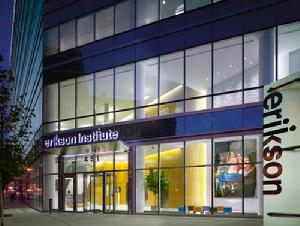
1、我們培養早期兒童專業人員幫助孩子們豐富他們的潛能並幫助他們的家長;
2、我們評價並正確對待兒童的發展、行為、社會情感和學習方面的問題;
3、我們給有壓力的家長以支持,並幫助他們樹立信心;
4、我們改善芝加哥的學校;
5、我們提高學前學校和幼稚園的數學教育;
6、我們致力於關注嬰兒和早期兒童的精神健康需要;
7、我們研究早期兒童項目區了解什麼在發生作用及其原因
這只是我們致力於改善兒童和各個家庭生活所做的努力中的個案。我們通過以下行動來實現我們的使命:
1、學術項目:他們提供了有關早期兒童生長和發展的廣博知識,這些知識對於有效地與年幼兒童相處是極為必須的;流暢的專業發展來增強在早期兒童領域工作的技能和有效性;
2、線上教育項目:擴展了高等教育的大門
3、直接的上門指導;
4、套用研究:正確定位了有效的早期兒童項目、實踐和政策;
5、社區夥伴關係和行動:改善和拓展了在以下機構和地方的服務:學校、社會服務機構、兒童福利系統和健康服務中心、法庭以及更多的其他地方。
每年在全國,學院的教師、研究者們、校友和學生大約為四百萬兒童提供服務。我們的使命
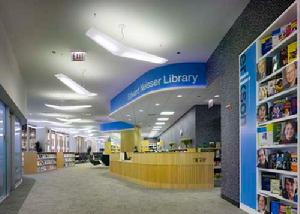
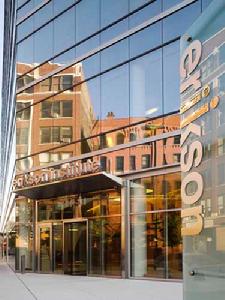
1、關係為基礎的教育 埃里克森(學院)著力於使其教育能辨別所有學習中關係的重要性
2、對社會公正的決心 埃里克森(學院)尋求教育的平等和公正,並為所有的兒童和家庭呼籲
3、多元化 埃里克森(學院)培養專業人員能夠與不同的種族、民族以及身體和精神能力不同的人共事
4、複雜性 研究院致力於理解和珍視生物學、心理學、文化的、歷史的以及社會的因素之間的互動作用對孩子的影響
5、高標準、精益求精 研究生們一直抱怨說埃里克森(學院)的功課太折磨人,但是沒有什麼比這個更值得的了我們的影響力
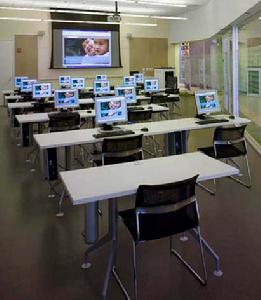
1、關係為基礎的教育 埃里克森(學院)著力於使其教育能辨別所有學習中關係的重要性
2、對社會公正的決心 埃里克森(學院)尋求教育的平等和公正,並為所有的兒童和家庭呼籲
3、多元化 埃里克森(學院)培養專業人員能夠與不同的種族、民族以及身體和精神能力不同的人共事
4、複雜性 研究院致力於理解和珍視生物學、心理學、文化的、歷史的以及社會的因素之間的互動作用對孩子的影響
5、高標準、精益求精 研究生們一直抱怨說埃里克森(學院)的功課太折磨人,但是沒有什麼比這個更值得的了
我們的影響力
1、1400多名早期兒童專業人員在埃里克森(學院)獲得了碩士學位和相應的證書
2、每年大約有2500名從業人員在我們的證書培訓項目和專業發展項目進行培訓。單在伊利諾州,他們所服務的兒童就有大約60000名
3、埃里克森(學院)員工們測評庫克縣教養中心的每一個五歲以下兒童,對兒童生活的主要給予者進行仔細的訪談,包括生物學上的父母、養父母和他們的夥伴。這些評價和面訪談用語決定孩子的治療和放置及未來的法律地位
4、至少9000名4-5歲的芝加哥公立學校的兒童將受惠於他們老師所提供的更優質的數學課程,因為未來三年這些老師將參加埃里克森(學院)的早期數學教育項目
5、自從2003年以來,問題兒童工作網路(Fussy Baby Network)幫助了嬰兒有啼哭、進食和睡眠問題的3000多個家庭,這個網路的服務和干預模式已被在五個州的六個不同的地方複製
6、我們的雙學位實習項目—在兒童發展領域獲取碩士學位,並在Loyola University 獲取MSW 學位(碩士學位的一種)--------在每年服務超過20000名兒童和家庭的機構工作
7、我們在杜龐縣(DuPage County)的第一個校外碩士項目正逐漸形成一個州立的學前-幼稚園教師證書項目,它每年在西部的市郊服務400多名高危兒童
8、12所芝加哥公立學校(至少服務於3500名學前期到三年級的學生)在我們的新學校工程(New School Project)接受專業訓練。另外兩所學校也將要加入這個工程
9、埃里克森(學院)的哈利兒童與社會政策研究中心(Herr Research Center for Children and Social Policy)提供了相關有價值的研究,它是關於五大湖及其以外地區的早期兒童問題對決策者和資助者的影響
10、我們擁有與伊利諾州教育局獨一無二的聯繫,為州內所有的1300多個幼稚園前期項目提供精神衛生諮詢服務
研究院快覽
Established: 1966
Alumni: 1,770
Our graduates are leaders who serve children and families in every capacity. They head social service agencies, advocacy organizations, museums, hospital programs, and parent support initiatives. They are principals, Golden Apple Award-winning teachers, program directors, social workers, therapists, and researchers. They teach at every level from preschool to graduate school. They are working in these areas:
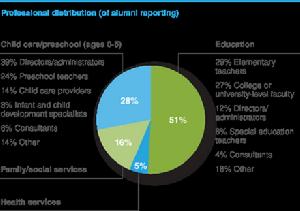
Louise Beem, cofounder, DuPage Children’s Museum, and founder, early childhood care and education program at College of DuPage Carol Brunson Day, president, National Black Child Development Institute and former executive director, Council for Early Childhood Professional Recognition Leon Denton, manager of Head Start, Salvation Army Child Care Program Chipo Dyanda, deputy vice chancellor, University of Zimbabwe Toby Herr, founder and director of Project Match, a community-based employment program that recently won a MacArthur Award for Creative and Effective Institutions Pat Manning, director of Child Life and Family Education, University of Chicago Children’s Hospital Molly McGrath, director of Baltimore City Department of Social Services Academic programs
The amazing physical, cognitive, and social-emotional development that takes place in the first eight years sets the foundation for success in learning and life. That’s why all Erikson programs instill a deep, interdisciplinary knowledge of all aspects of that growth. Our students focus on how family, culture, and community shape development—and how their own culture influences relationships with the children they serve. They learn to continually reflect on their interactions, making them more effective practitioners.
Programs offered
Master of science degrees
child developmentwith optional specializations in infancy, administration, infancy and administration, or child life child development/master of social work(dual degree program in collaboration with Loyola University Chicago) early childhood educationleading to Type 04 teacher certification, with optional bilingual/ESL specialization online master's in early childhoodeducation for experienced educators Certificate programs
Irving B. Harris infant specialist certificate, with specializations in prevention/early intervention and infant/toddler child care Irving B. Harris infant mental health certificateBilingual/English as a second language certificatedoctorate in child development(in collaboration with Loyola University Chicago)
See program accreditation information »
Students by the numbers
In fall 2010, Erikson enrolled approximately 225 masters, 15 doctoral, and 70 certificate students. Together, they present the following profile:
Women: 97% Students of color: 34% Average age: 30 Age range: 21–62 States represented: 20 Countries represented (outside U.S.): 9 Professional development
Erikson’s broadest impact is through professional development opportunities. Each year nearly 2,500 early childhood professionals sharpen their skills and enhance their effectiveness in courses, workshops, seminars, and customized on-site staff development offered throughout the greater metropolitan Chicago area. These research-based learning opportunities focus on
| · teaching and learning | · early intervention |
| · leadership and supervision | · infancy |
Our professorsare recognized scholars and respected voices for children. Our faculty includes advisers to the U.S. Department of Education, a Fulbright senior scholar, award-winning researchers, pioneers of the infant mental health movement in Illinois, and more.
While actively teaching courses, they also bring their expertise to community through dozens of projects and community partnerships that support and enhance early childhood programs. These projects generate new knowledge and provide students with opportunities for hands-on experience in different areas of the field.
See experts guide »
Research
These scholars study important questions that shape the care and education of children. Some topics include:
early childhood assessment tools and methods after-school program effectiveness Early Head Start effectiveness preparing teachers to meet the needs of culturally, economically, and racially diverse students vocabulary acquisition among second-language learners impact of teachers’ math knowledge and language on children’s learning literacy development, particularly among urban students technology training for early childhood teachers parent support and efficacy parent-child pSYChotherapy effectiveness of services to families of children with special needs impact of excessive crying on infants’ development The Herr Research Center for Children and Social Policyconducts original research and disseminates knowledge that that informs, guides, and supports effective early childhood policy in the Great Lakes region.
Community engagement
Putting knowledge about child development to work in the community is a vital part of Erikson’s mission. We do so through an ever-growing variety of projects and partnerships. A few are listed here:
Center for Children and Families
A multidisciplinary team provides comprehensive, family-centered assessment and treatment for children birth to age eight with behavioral, social-emotional, learning, and developmental issues.
Early Mathematics Education Project
Young children get a better grounding in math concepts as this project coaches 100 preschool and kindergarten teachers to bolster their proficiency and help them weave math's big ideas into classroom activities.
Illinois Department of Children and Family Services Early Childhood Unit
DCFS contracted with Erikson to administer developmental screenings for all children ages birth through five entering the foster care system and assess their biological parents and foster caregivers, to determine required services.
Infant and Early Childhood Mental Health Consultation Project
This project enhances the capacity of Prevention Initiative (birth to three) and state pre-K program staff to promote infant's and young chldren's mental health and school readiness.
Herr Research Center for Children and Social Policy
The center informs, guides, and supports effective early childhood policy in the Great Lakes region with original research regional and dissemination of knowledge that promotes the well-being of young children.
New Schools Project
This project brings Erikson’s early childhood expertise directly into pre-K through third grade classrooms in the Chicago Public Schools. Consultants partner with schools to establish positive learning environments so children experience school success.
See more research and community projects »
See experts guide »
Services for children and families
Center for Children and Familiesprovides comprehensive, family-centered assessment and treatment for children birth to age eight with behavioral, social-emotional, learning, and developmental issues.
Fussy Baby Networkprovides telephone support and home visits for parents struggling to cope with an infant that cries inconsolably. The network also Spanish-language support and services to parents in immigrant communities.研究院歷史
Erikson Institute, a private graduate school and research center, was established in 1966 in response to the critical need for early childhood professionals to staff the nation’s expanding programs for young children.
Three prominent child advocates—child psychologist Maria PIERS, social worker Lorraine Wallach, and educator and activist Barbara Taylor Bowman—launched the institute with the support of businessman and philanthropist Irving B. Harris.
Each believed that a comprehensive understanding of child development was fundamental to the task of helping children reach their potential. They recognized a demand for well-trained early childhood teachers to work in newly launched Head Start programs. Harris and Piers went to Washington D.C. in late 1965 to seek funding for the school they had in mind. The response they received was promising but for months, no funds were forthcoming. Ultimately, Harris told Piers and her colleagues that he would cover costs if they went ahead.
The school—originally known as the Chicago School for Early Childhood Education—enrolled its first class of 16 student in the fall of 1966. Classess were held in the Hyde Park Bank building. In 1967, the school formed an affiliation with Loyola University Chicago to grant a master’s degree. In 1969, it was renamed for Erik Erikson(1902–94), the German-born psychoanalyst and former colleague of Piers who first proposed that children are not simply biological organisms but also products of society’s expectations, prejudices, and prohibitions.
A unique approach
To prepare students to understand the whole child, the founders recruited faculty from early childhood education, administration, cultural anthropology, clinical and developmental psychology, pediatrics, and social work. The curriculum emphasized developmental psychology, biology, and social science in addition to more traditional disciplines.
Their vision was to create a multiethnic, interdisciplinary group of early childhood practitioners, educators, administrators, and community leaders committed to delivering the very best care and early education to young children and their families. These leaders would work as advocates for children at risk for school failure and developmental harm.
The method Erikson’s founders chose for preparing these leaders was unique, and it remains so today: relationship-based, theory-driven, self-reflective practice. From the start, Erikson emphasized the centrality of relationships in all learning and in successful intervention with families and community and institutional systems. Through small-group seminars and faculty mentoring, the Institute led students to examine their own responses to children, families, and professionals, instilling the habit of professional self-reflection. Internships are required so students hone their skills and see how lessons apply in the field. This intensive approach linking theory and knowledge to practice has become the gold standard in the field.
Following the same rigorous approach, Erikson added a Ph.D. program and dual degree program in child development with Loyola, as well as several certificate programs and master’s degree options. After several years of granting master’s degrees independently, Erikson received full accreditation from the North Central Association in 2000.
Community initiatives and applied research
From its earliest days, Erikson Institute has worked well beyond the classroom walls. Faculty trained Native American teaching staff in Head Start programs on reservations, consulted with inner-city day care centers, helped develop child life and family education programs at local hospitals, and produced educational videos, articles, and booklets for a wide range of audience. Today Erikson continues to provide professional development, consultation, and direct service to schools, service agencies, courts and lawyers, medical clinics, and many other community settings.
Erikson’s applied research programs also address community needs and focus on systems change. Faculty and researchers have established a literacy initiative to explore the preschool origins of reading and writing; examined the efficacy of early childhood intervention programs; researched the impact of violence on children and developed prevention programs to help children cope with violence; and measured the unmet need for mental health services among infants.
In an era of declining quality of urban public education, teacher education and curriculum change have been a major focus for the Institute. For nearly 20 years, Erikson has teamed with the Chicago Public Schools on many initiatives to improve teaching and learning and create an educational bridge between the preschool and elementary grades.
In 2005, the Herr Research Center for Children and Social Policywas launched with new support from Jeffrey Herr and several foundations to channel Erikson’s applied research into the policy arena. The Fussy Baby Network—Erikson's first program to directly serve families—was launched in 2003 and joined in 2009 by the Center for Children and Families.
Erikson Institute offers master’s degreesand graduate certificate programs as well as a doctoralprogram in conjunction with Loyola University Chicago, all focused exclusively on early childhood development.
Complementing these programs, we offer a wide range of professional development opportunities to enhance the skill and knowledge of an equally broad range of professionals who teach, care for, or work with young children.
All of our programs feature: A holistic, multidisciplinary approach that covers all dimensions of child development from birth through age eight, within the context of family, culture, and community; a relationship-based approach to working with children and families; a focus on self-reflection to build your practical skills and professional self-awareness; a faculty nationally known for excellence in teaching, applied research, and community engagement on behalf of children and families; small classes and close relationships among faculty and students; a diverse and experienced student population; a supportive professional network that includes hundreds of contacts in early childhood, public education, social service, legal, and medical communities nationwide; and a convenient location in the heart of Chicago, with ready access to all the cultural and professional amenities of a vibrant city that serves as a rich laboratory for intellectual inquiry in early childhood.
Our faculty members are respected voices for children; their expertise is sought and heeded by the medical and legal community, state policymakers, national research and advocacy organizations, and Congressional committees.
Visit our research sectionto browse recent faculty presentations, download research publications, and see all the projectswhere they are actively generating and applying child development knowledge in the community.
Administration
Samuel J. Meisels, Ed.D.
President
Aisha Ray, Ph.D.
Senior vice president for academic affairs and dean of faculty
Professors
Barbara T. Bowman, M.A.
Irving B. Harris Professor of Child Development
Jie-Qi Chen, Ph.D.
Professor
Molly Fuller Collins, Ed.D.
Assistant professor
Pamela Epley, Ph.D.
Assistant professor
Jane Fleming, Ph.D.
Assistant professor
Linda Gilkerson, Ph.D.
Professor
Robert Halpern, Ph.D.
Professor
Jon Korfmacher, Ph.D
Associate professor
Gillian Dowley McNamee, Ph.D.
Professor
Luisiana Meléndez, Ph.D.
Clinical assistant professor
Tracy E. Moran, Ph.D.
Assistant professor
Frances Stott, Ph.D.
Barbara T. Bowman Professor of Child Development
Sharon Syc, Ph.D.
Clinical associate professor
Instructors
Victor Bernstein, Ph.D
Instructor
Stephanie Bynum, M.S.
Assistant dean for academic affairs
Jeanna Capito, M.S.
Instructor
Patricia Chamberlain
Instructor
Colette Davison, Ph.D.
Senior Instructor
Isabela Dos Santos Marchi, M.Ed.; M.S.
Instructor
Carey Halsey, M.S.Ed.
Senior Instructor
Megan Hillegass, M.S.
Instructor
Mary Hynes–Berry, Ph.D.
Senior Instructor
Rebeca Itzkowich, M.A.
Senior Instructor
Laurie Kabb, LCSW
Instructor
Pat Manning, M.Ed.
Instructor
Mary Marovich, M.Ed.
Instructor
Ann L Masur, Ph.D.
Instructor
Rebecca Mermelstein, Ph.D.
Instructor
Jennifer Rosinia, Ph.D.
Instructor
Center and program directors
Chip Donohue, Ph.D.
Director of distance learning
Jana Fleming, J.D., Ph.D.
Director, Herr Research Center for Children and Social Policy
Christine Maxwell, Ph.D.
Director, New Schools Project
Margret Nickels, Ph.D.
Director, Center for Children and Families
院長簡介
Dr. Meisels has served as president of Erikson Institute since 2002. He hOLDS the Irving and Neison Harris President’s Chair.
He came to Erikson after 21 years at the University of Michigan, where he is now professor and research scientist emeritus. Previously, he was a faculty member in the Department of Child Study and director of the Eliot-Pearson Children's School at Tufts. A former preschool, kindergarten, and first-grade teacher, he also served as senior advisor in early childhood development for the Developmental Evaluation Clinic of Boston's Children's Hospital. He holds a doctorate from the Harvard Graduate School of Education.
One of the nation's leading authorities on the assessment of young children, Dr. Meisels has published over 200 articles, books, and monographs, and is co-author of the Work Sampling System, the Early Screening Inventory Revised, The ounce Scale and The Handbook of Early Childhood Intervention. To download a summary of the research on the Work Sampling System, click here»
His research focuses on the development of alternative assessment strategies for young children; the impact of standardized tests on children; and developmental screening in early childhood. Recently, he completed research on the validity of The Ounce Scale, an observational assessment for birth to three-year-olds and their families.
Download curriculum vitae»
Dr. Meisels is former president of the board of directors of Zero To Three: The National Center for Infants, Toddlers, and Families and is an advisor to the national Head Start Bureau. He was a member of the National Academy of Science's Committee on Early Childhood pedagogy and has served as a senior investigator for the national Early Childhood Longitudinal Study-Kindergarten cohort and for the Center for the Improvement of Early Reading Achievement.
Among his honors, Dr. Meisels has received the American Academy of Pediatrics 2005 Dale Richmond/Justin Coleman lectureship Award; the Chicago Metropolitan Association for the Education of Young Children Outstanding Service to Young Children Award (2005); and the Association of Children's Museums Great Friend to Kids Award.
Areas of Expertise
Developmental assessment of young children; the effect of standardized tests on children; the impact of state and federal policies on the families of children with disabilities; development of alternative assessment strategies; and developmental consequences of high-risk birth.
Erikson is located in downtown Chicago's River North area.
Erikson Institute
451 N. LaSalle Street
Chicago, Illinois, 60654-4510
Tel: (312) 755-2250
Fax: (312) 755-0928
芝加哥介紹
芝加哥(Chicago)城市名。位於美國中西部,屬伊利諾州,東臨密西根湖。芝加哥及其郊區組成的大芝加哥地區,是美國僅次於紐約市和洛杉磯的第三大都會區。芝加哥地處北美大陸的中心地帶,為美國最重要的鐵路、航空樞紐。芝加哥同時也是美國主要的金融、文化、製造業、期貨和商品交易中心之一。自1833年建市以來,經過一百多年的發展,逐漸成為具有世界影響力的大都市之一。芝加哥常見的別名包括:“第二城”,“風城”,“芝城”等。同名的還有歌劇、電影等。
院長最近動態
該院院長Samuel J. Meisels將於2010年10月15日-10月17 訪問南京師範大學,並將與該校學前教育系師生進行學術講座與交流。
講座題目:
How Assessments and Standards Can Improve Teaching and Learning
時間:10月15日下午2:30,
地點:隨園校區田家炳南樓602室
